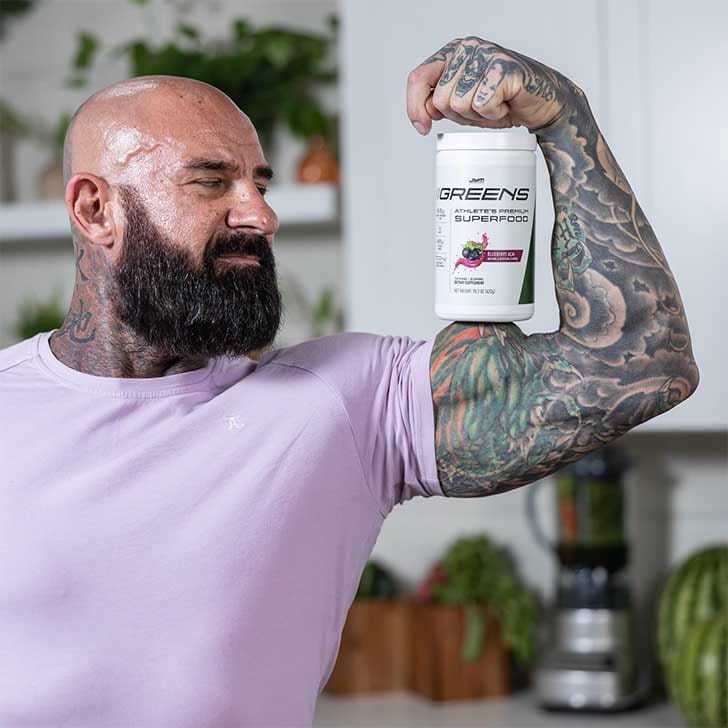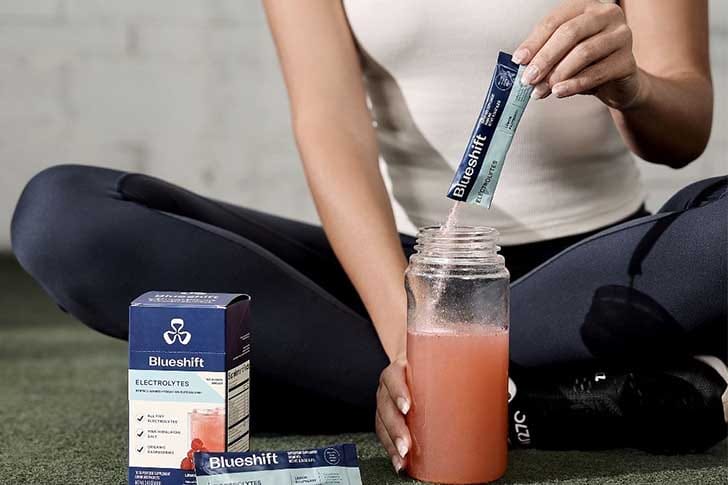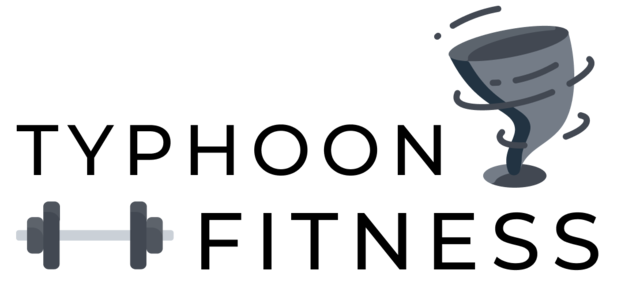When you first start lifting, you may find that everyone's obsessed with what's in their shaker bottles. You'll also come across flashy tubs of pre-workout that promise a massive energy boost that'll make even those wary of potential side effects wonder if they're missing out.
Pre-workout supplements, with their caffeine-packed formulas, have become the gym-goer's secret weapon. They often contain ingredients like beta-alanine for muscle endurance, L-arginine for blood flow, and caffeine for that extra push. Yet, while they can enhance performance, are they really necessary?
Are Supplements a Secret Weapon?

Jim Stoppani, PhD / Instagram
Regarding pre-workout supplements, the real question is whether they offer benefits that can't be gotten elsewhere. Men's Health Nutrition Advisor Dezi Abeyta, RDN, believes it largely depends on one's lifestyle outside the gym. A supplement can't compensate for a poor diet. If a person is fueling up on junk or not eating enough before a workout, no amount of pre-workout will give them the full benefits.
Men's Health fitness director Ebenezer Samuel, C.S.C.S., adds that while pre-workout can be effective, it's essential not to rely on it too much. Building muscle isn't just about the physical grind but also mental strength. Think of pre-workout like a lifting belt—you should only reach for it after tapping into your natural abilities.
It's also important to look out for labels from Informed Choice, Informed Sport, or NSF Certified for Sport, to be sure that what's in those bottles is safe and as advertised.
Is Caffeine in Pre-Workout a Double-Edged Sword?

Blueshift Nutrition / Instagram
Coffee lovers may think adding a caffeine-packed pre-workout to their routine is a no-brainer, but that may be the wrong move.
According to FDA guidelines, 13.5 ounces of caffeine per day—roughly four cups of coffee—is considered safe, with about two cups being a safe single serving. But if your pre-workout is loaded with caffeine, stacking it with morning brew could push you over the limit, leading to those jittery side effects nobody likes.
Timing is everything when it comes to caffeine. Consuming it too late in the day can interfere with sleep, and even 7 ounces of caffeine can do some damage. So, experts recommend setting a "caffeine curfew" around 2 to 3 p.m. to prevent the risk of poor sleep, which can undermine gains.
For evening gym-goers, this could mean skipping the pre-workout altogether.
The Final Verdict: Should You Use Pre-Workout?

prostooleh / freepik
Yes, pre-workout can offer an extra push in the gym, but it's not a magic fix.
Experts insist that it shouldn't replace the basics: proper sleep, nutrition, and stress management. Men's Health fitness director Ebenezer Samuel also stresses that pre-workouts can't compensate for poor rest. It's a tool, not a crutch, and should only be considered by people with a solid foundation.
If you decide to use pre-workout, limit intake to once or twice a week and reserve it for when you truly need an energy boost. This is the best way to maximize its effectiveness without overly relying on it.

